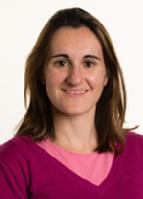Back to the Future: How Studying History Helps Medical Science
Feedback from the event:
"Enthusiastic staff talking about their fascinating work"
"Well-presented and varied presentations that make the subject easy to appreciate and understand"
"Really interesting evening linking history, literature and classics"
The audience enjoyed...
"The range of presentations and the enthusiasm of all. The sound and natural atmosphere. I was really impressed; this was my first visit!"
"Interactions with the presenters and students around phage, plague and historic data"
"The opportunity to view exhibits and speak to researchers in the interval"
"Very interesting and well worded talks"
About the event
On Tuesday 12 March 2019, the School of Life Sciences (SLS) held its fourth Public Science event of the 18/19 academic year – Back to the Future: How Studying History Helps Medical Science.
This event was organised by Dr Freya Harrison (SLS), with support from Dr Antonia Sagona (SLS), Dr Caroline Petit (Classics Department), Dr Sophie Mann (History Department) and Dr Kathryn Woods (History Department). Each gave a talk on topics within the exciting subject of medieval medicine covering information such as Monstrous Births, Bacteriophage therapy, Galen and Ancient Antibiotics.
A 40-minute break in the middle allowed audience members to look at a selection of posters highlighting the research within the department. Posters were supplied by members of SLS and students from the Classics department. A plague demonstration where audience members had to fire ‘plague infested’ jelly babies over a castle wall was provided by Professor Kevin Moffat and Dr Robert Spooner.
Dr Freya Harrison, Microbiologist"Looking back at the history of medicine can lead to us rediscovering forgotten approaches to treating disease, such as plants and other natural products with useful biological properties. It can also help us re-assess how we approach medical and scientific problems, and how this is influenced by our contemporary culture. This public science evening showed how researchers from the sciences, humanities and arts can work together to help the past inform the future". |
|
Dr Antonia Sagona, Cell Biologist“It was a great pleasure to discuss phages and phage therapy with the audience on this public open evening, as a forgotten and rediscovered method to tackle bacterial infections and antimicrobial resistance. The audience showed great interest and asked many questions and they made me realize one more time that our work as scientists is of great impact to everyday problems that affect the people worldwide”. |
Upcoming Public Science Event
Tuesday 18 June - Exoplanets and life: are we alone?
Registration will open in April
Find out more
- Dr Caroline Petit (Classics)
Galenic Medicine - Dr Freya Harrison (SLS)
Medieval antibiotics - Dr Kathryn Woods (History)
- Dr Sophie Mann (History)
- Dr Antonia Sagona (SLS)
Phage therapy

|
| Dr Caroline Petit describes the use of Nigella seeds to make an ancient inhaler. |

|
| Dr Freya Harrison discusses Medieval Antibiotics |

|
| Busy poster session |


